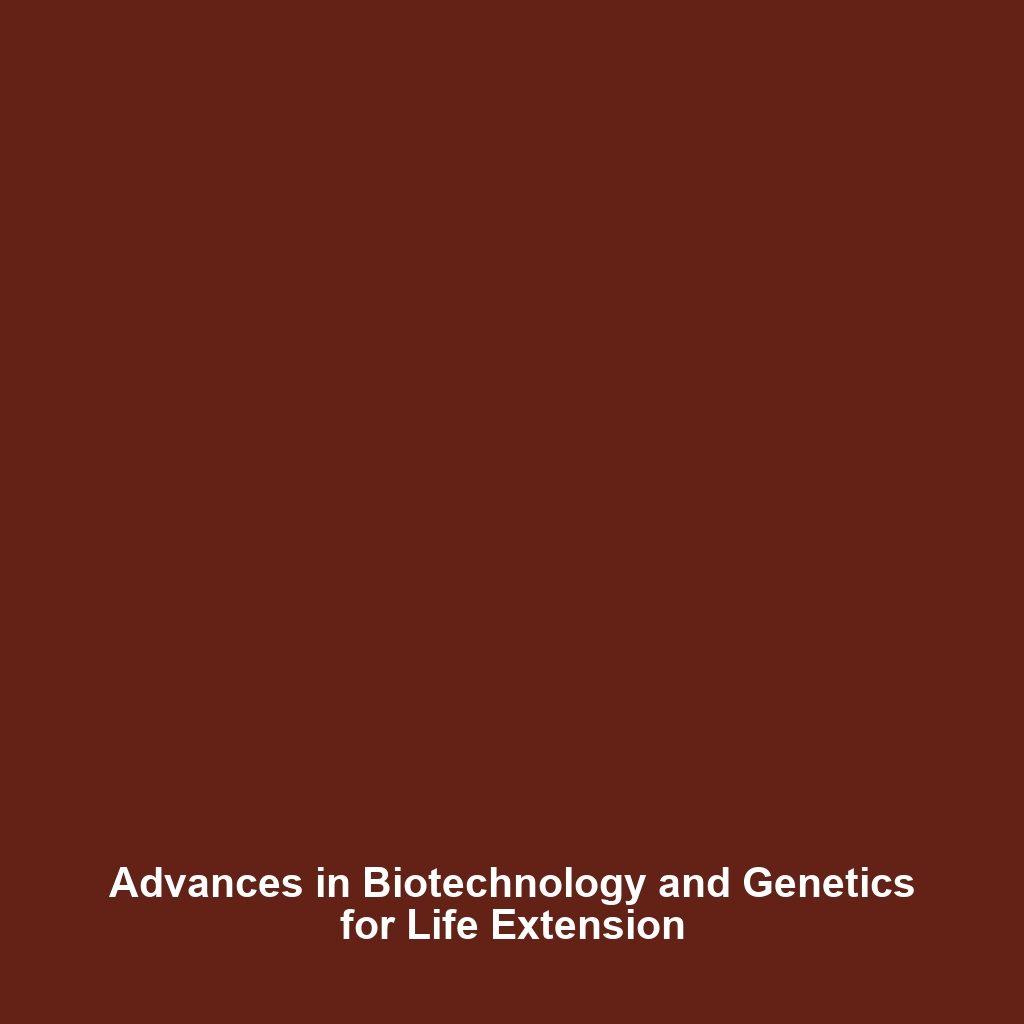Life Extension: Exploring the Future of Human Longevity
Introduction
Life extension refers to efforts to prolong human lifespan, often by slowing or reversing the aging process. This powerful concept sits at the intersection of biology, healthcare, and ethics, capturing the interest of scientists, futurists, and the general public alike. As advancements in technologies such as cryonics and regenerative medicine continue to evolve, understanding life extension becomes increasingly significant in exploring the potential for extended human life. By delving into the mechanisms of aging and uncovering transformative approaches, the quest for longevity promises to reshape our society in profound ways.
Key Concepts
Understanding Aging
At its core, life extension involves a deep understanding of the biological processes of aging. Researchers focus on:
- Cellular senescence: The process through which cells lose their ability to divide and function.
- Telomere shortening: The gradual wear of protective caps on the ends of chromosomes that limits cellular replication.
- Oxidative stress: Damage caused by free radicals that accelerates cellular aging.
Mechanisms of Life Extension
Efforts to extend life involve various approaches, including:
- Caloric restriction: Reducing calorie intake with adequate nutrient supply has shown promising results in increasing lifespan.
- Genetic modifications: Advancements in gene editing technology like CRISPR are exploring ways to extend life via genetic alterations.
- Stem cell therapy: Utilizing stem cells to regenerate damaged tissues and organs as a pathway to enhanced lifespan.
Applications and Real-World Uses
Research on life extension has practical applications across multiple domains:
- Healthcare: Improved strategies for preventing age-related diseases, thus enhancing quality of life.
- Pharmaceuticals: Development of drugs targeting aging processes of diseases such as Alzheimer’s and cardiovascular disorders.
- Cryonics: The utilization of cryopreservation techniques to preserve human beings or tissues at extremely low temperatures, allowing for potential future revival.
Current Challenges
Despite significant progress, several challenges persist in the field of life extension:
- Scientific complexities involved in understanding the multifactorial nature of aging.
- Ethical dilemmas surrounding the implications of extended lifespan on society, resources, and healthcare.
- Regulatory hurdles that complicate research and the application of biotechnologies.
- Public skepticism and misinformation affecting research funding and public acceptance.
Future Research and Innovations
The future of life extension is poised for groundbreaking advancements:
- Novel anti-aging compounds are currently being researched for their potential to slow aging at the cellular level.
- Innovations in nanotechnology may revolutionize how we understand and tackle age-related conditions.
- Increased collaboration between interdisciplinary fields will fuel transformative research into both life extension and cryonics.
Conclusion
In conclusion, life extension efforts represent a critical area of research, offering the promise of improved human longevity by slowing or reversing the aging process. With ongoing advancements in cryonics and regenerative medicine, the implications of these studies are vast and profound. As we pave the way for the future of human longevity, it’s vital to stay informed and engaged with the latest developments. For further reading on related topics, explore our pages on Cryonics and Regenerative Medicine.

